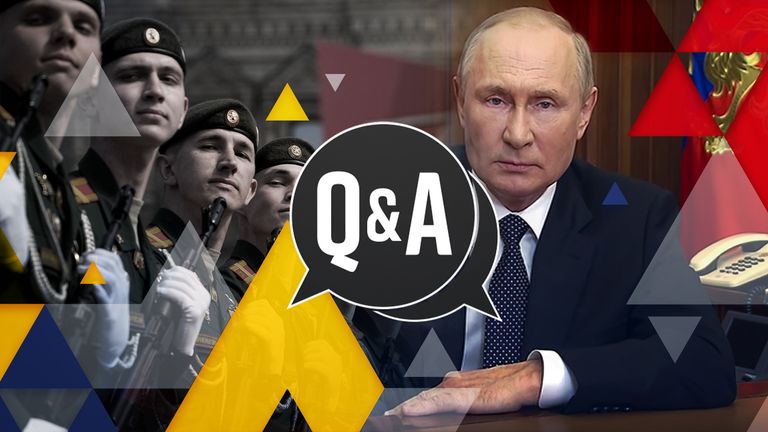Dominic Waghorn, international affairs editor:
The boring answer to this is that we live in a parliamentary democracy. MPs are voted for every five years and entrusted with making decisions they believe are in the best interests of voters and country, even if those decisions would actually be unpopular.
As the 18th century political thinker Edmund Burke put it: "Your representative owes you, not his industry only, but his judgment; and he betrays instead of serving you if he sacrifices it to your opinion."
Referendums are therefore very rare. But very little polling has been done on Britain's support of Ukraine. That support is likely to be strained, however, as the cost of living crisis continues to bite.
As we struggle with soaring bills and shiver in our homes this winter, will we blame Vladimir Putin and want more done to punish him, or hold our government responsible?
Whether or not the war goes on, European nations are likely to continue reducing their dependency on cheap Russian energy, which means fuel prices are likely to remain high for some time to come.



Bgpmonster: